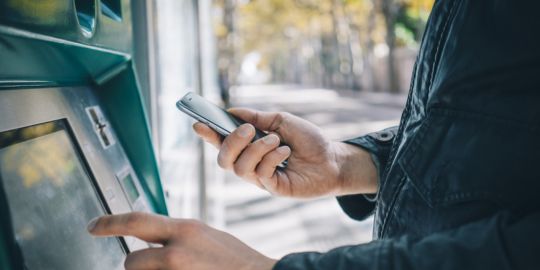The COVID-19 has given a boost to the process of digitalization in the public sector. How does Mauritius compare to other countries on this?
That is true indeed, utility bills are payable online, but these were not created to deal with the confinement, they already existed but now they're getting a lot more users.That being said, the country has a lot of catch up to do with regards to other countries.
It is now possible to pay bills online. What are the services, which are not yet provided online but should be, according to you?
Vegetable Online Shopping is the obvious one, but the prices are not comparable to what you can buy in the traditional markets yet. Other useful services such as warnings about when a locality will be deprived from water or electricity would be very helpful. Food delivery services exist, but they are very limited, do not serve most some areas and still expensive.
Do you think that the public, at large, is ready to use online services on a daily basis?
I think it will take another five years for the computer literate people to become the majority spenders of the island. From that point onwards, it will be difficult to survive if your business is not online. It's coming, but we are not fully there yet.
How can this accelerated process of digitalization benefit expats in Mauritius?
A lot of them are already used to online services, and sometimes due to language barriers it is much easier to use an online service. I believe these people don't live in the city centres, which means far away from most businesses with reasonable pricing. Being able to order something online would be a big bonus.
One of the main concerns when talking of digitalization of services is safety when dealing with cash transactions. Do you think that the users have been able to overcome those fears and that the services are secured?
Good point. If somebody is not careful, they might easily get scammed. Even fake websites have HTTPS (the green lock) these days. So it takes a little skill to recognise a legitimate domain name from a fake one. I think browsers are helping with this by highligting the domain names but it requires a little education. For example: www.facebook.com is a legit website www.facebook.i.myprofile.com is not facebook.
What should we absolutely know before doing an online transaction?
Be careful before entering private information. If a stranger showed up at your door, would you be comfortable giving them these info. Always keep an eye on the website and check if you were redirected to a shady website somewhere during the purchase. Always buy from popular websites and check if they have a refund policy like ebay, aliexpress, amazon. Avoid lesser known websites that usually show very beautiful ads on instagram, for example, but will never ship the product.
Pay with paypal or another intermediary to avoid inputting your credit card info directly to the websites. This way, even if you lose $10, your card is safe. Always saved a copy of the receipt in your email. Check the shipping cost. Sometimes shipping is more than the actual product.
Are there any means by which anyone can verify if an online service is safe?
For gouvernemental websites, you don't really have a way to verify other than making sure you are on the correct site. For less popular websites, you can just enter the site name on google and see if others reported it as a scam.
Any advice for those who cannot trust the digital world?
A lack of trust in digital tech indicates they don't understand how it works. So education is the key.
That being said, I think people who hesitate to trust online transactions are better off than the people who blindly trust any website as they might become scam victims.
















